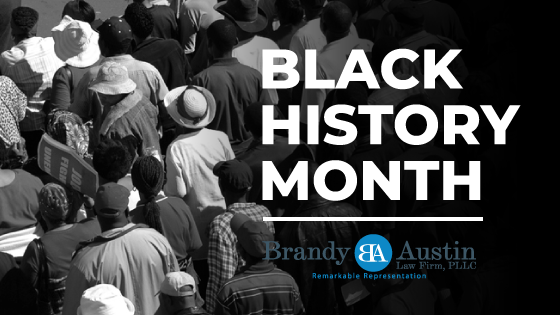Carter G. Woodson
In 1915, half a century after the abolishment of slavery, Carter G. Woodson and a colleague met and discussed ways to celebrate the achievements of African Americans in the United States. After hundreds of years of slavery, Woodson believed it was time to show the world that African Americans are not only free but also deserve recognition for all their beauty, brains, and accomplishments. By 1926 Woodson had established National Negro History Week. The week coincided with the birthdays of Abraham Lincoln and Fredrick Douglas, both of whom were pioneers and assisted in freeing slaves. By the 1960s, the week-long celebration had grown into a full month. During the month of February, our country celebrates and recognizes the accomplishments, inventions, philanthropy, minds, and beauty of African Americans from today and years passed. Each year the Association for the Study of African American Life and History (ASALH), also founded by Woodson dedicates a theme to black history month, this year it is African Americans and the vote.
Black Codes
The fight for the right to vote has been tough and long, leaving a stain on the history of our country. After the abolishment of slavery and the assassination of Abraham Lincoln, Andrew Johnson took office. Johnson believed in states’ rights and gave states the ability to enact regulations as they saw fit. First to come were black codes. While some black codes did exist prior to the American Civil War, they were going into full effect when slavery was no longer an option. Black codes were a set of codes enforced in the south that would restrict the newly freed slaves from various activities. Black codes established clear boundaries, such as ensuring that African Americans couldn’t work for a wage and if they did that wage was a fraction of what their white counterparts made. Lunch breaks weren’t always something African Americans were allowed to take and often times would work for long hours without a break. Another black code took away African Americans’ rights to vote because while they were free, they weren’t considered citizens. Members of Congress became outraged and fought against the black codes by the Civil Rights Bill, which would have given freed African Americans the rights of citizens. The president at the time vetoed the bill, and for the first time in history, congress overrode his veto.
Jim Crow Laws
Eventually, the 14th and 15th amendments were passed, giving citizenship to the newly freed slaves and prohibiting discrimination in voting on the premise of race, color, or previous servitude. While black codes were outlawed, the south was unhappy with recent changes in their government, and Jim Crow laws were born. Jim Crow laws were essentially black codes just renamed and changed. The Civil Rights Movement changed a lot in our nation however states continued to use Jim Crow laws to discriminate when it came to voting. African Americans were jailed, beat, and lynched when they attempted to exercise their rights. Some states would disenfranchise African Americans through incarceration by passing laws that took voting rights from those that were incarcerated. While Jim Crow laws were outlawed and the south started to take a new shape gerrymandering and other forms of discrimination at the ballot box still continue to this day. It has and continues to be a long hard-fought issue for African Americans.
Continuing the Fight
This month is meant to honor those who fought for the right to vote as well as those that continue to take a stand against discrimination in all of its ugly forms. Voting is a right that everyone in our country deserves to exercise no matter their race, gender, or sexual orientation. If you want to help change this injustice contact your local officials by writing a letter or making a call for action.




